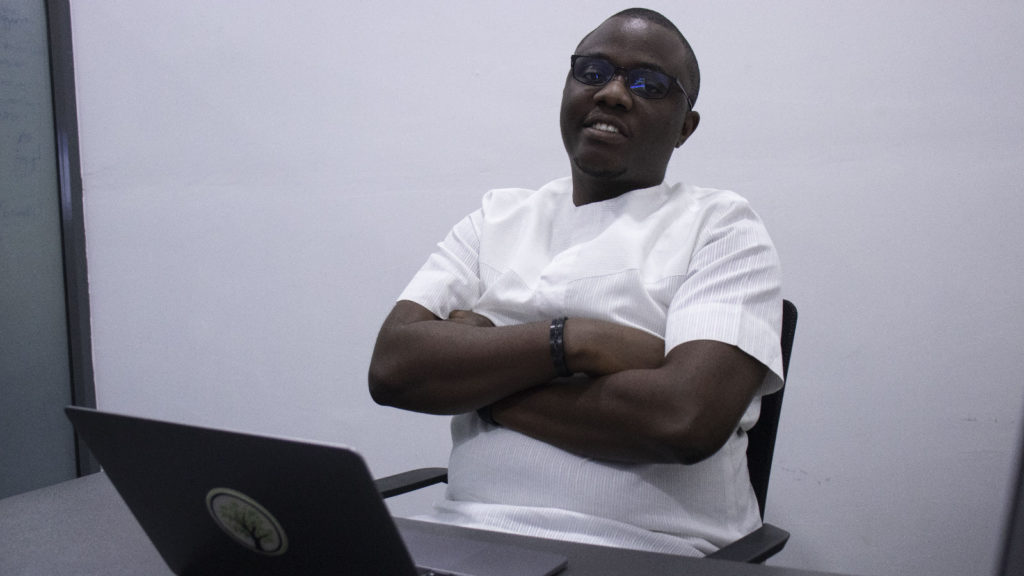His business may have raised a $1-million round from Silicon Valley investors in December last year. But Farmcrowdy founder Onyeka Akumah says he learnt how not to do business when he sold his last business some years ago.
Although Akumah (pictured above) won’t disclose the name of the startup — a news aggregator which he founded with a friend in 2012 and subsequently sold to Nigerian newspaper Business Day — he says it taught him “how not to do business”.
No ad to show here.
“We latter sold parts of it. It’s one of the lessons I’ve learnt how not to do business,” he says. “We raised some money, I think $50 000 then, and tried to grow it. But, we weren’t able to do much about that.”
“Selling it was pretty much about them acquiring the team, acquiring some of the technology, not really that we made a lot of money, but there were lessons to learn here,” says Akumah.
So what does Akumah advise startup to do when going into business?
1.Don’t go solo
First off, Akumah says one of the mistakes he made in his earlier businesses, including the news aggregator, were around team work — particularly the lack of it.
“I was pretty much the brainchild around my startup then. I was pretty much the only one making decisions and everyone else was just following instructions.
“I didn’t have a solid team around me to continue to critique and then throw in their own ideas and make things better,” he says.
Farmcrowdy CEO Onyeka Akumah says he learnt several lessons, including ‘how not to do business’ from his first major startup, a news aggregator he founded in 2012
He explains that it “gets very lonely” when you’re the only one thinking about everything, especially when the business doesn’t scale as fast as you want it to.
“One thing I will take from that experience is surround yourself with the right people. Build a team around you and your idea. Don’t go solo,” he advises.
2.When you raise money, don’t pivot
The second tip he gives is to not start chasing new ideas after raising funding.
“When you raise money it doesn’t mean you should start pivoting and start having new ideas”.
He says one of the mistakes he made when his first startup raised funding was “quickly changing the product because we felt we had enough money”.
“We didn’t try the new things to see if they could work before implementing them. We just changed the product directly to those new things, that affected the business,” he adds.
Raising money, Akumah advises, doesn’t mean you should change focus. Instead, he stresses, it means scaling on the one idea or solution you’ve been able to create.
“Scale it and get a lot more people to buy into that idea. That’s something that I missed out on in the first business,” he says.
3.Start small, learn fast and scale
Akumah says another big lesson he learnt is to “start small and scale fast”.
He says it’s important to understand ones business model from the beginning to the end — in order to have a “holistic idea of what the mode is”. Only then, he says, should one make the decision to scale or not.
“But don’t scale until you know your business and have understood all the risk involved and you’ve been able to successfully mitigate to the barest minimal all the risk factors before you scale. Start small, learn fast and scale,” he advises.
4.Get the wrong people off the bus quickly
His final word of advice is this — in the event that you recruit individuals that doesn’t fit the team, get them out of the company as quick as possible, as he says “get the wrong people off the bus quickly”.
Says Akumah: “You may recruit and find that someone doesn’t fit the team. Find ways of getting that person out quickly before they demoralise other good people in the team.”
Read more: How football helped kick off Nigerian agritech startup Farmcrowdy
Featured image: Farmcrowdy CEO Onyeka Akumah at the startup’s Lagos office (Supplied)
